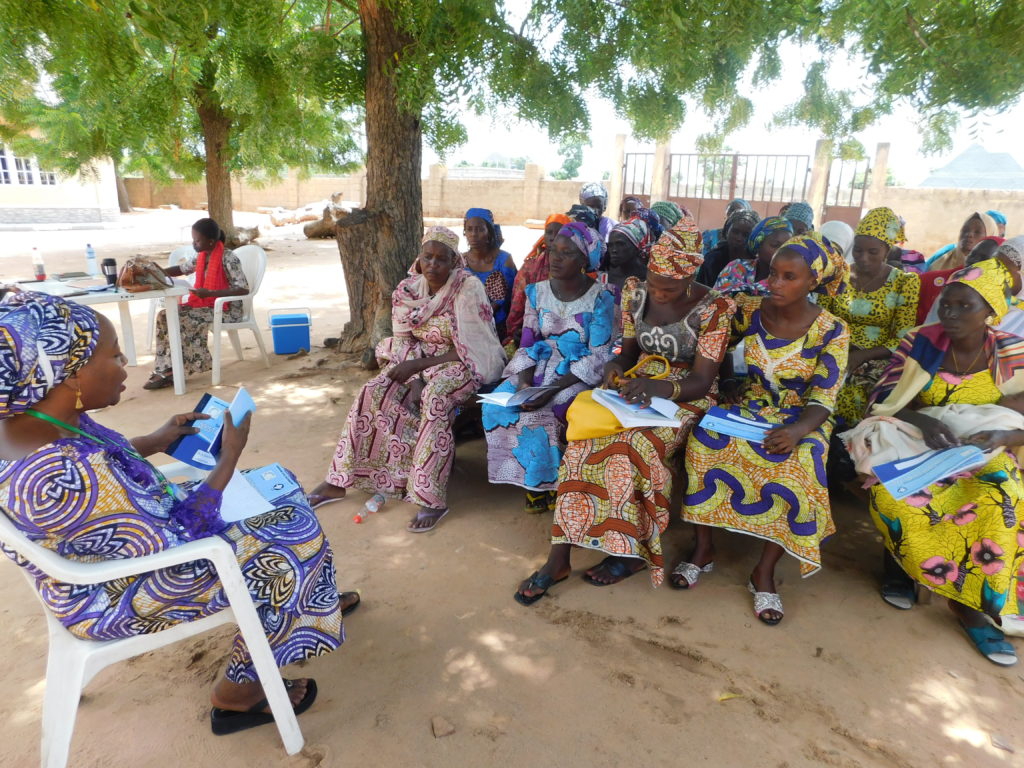A creative response in Nigeria’s northeast
Even before the COVID-19 outbreak, Nigeria’s health infrastructure was inadequate and strained by the crisis of ongoing conflict with Boko Haram, which has forced people from their homes and caused many to lose their livelihoods.
In 2014 Jummai Bello’s family of six escaped deadly crossfire between Boko Haram and Nigeria’s military in the town of Gwoza in Borno State. Lacking access to shelter, water and food for days as they fled, they remain unable to return to their home community.
Currently, more than 2 million people are displaced in Nigeria’s northeast due to fighting between Boko Haram and the military. The violence’s impact has also caused about 7.9 million people to be in need of emergency humanitarian assistance, often lacking clean water, adequate sanitation and nutritious food. These conditions make outbreaks of diseases such as malaria, measles and cholera more likely. Women, pregnant and nursing mothers and children are the most vulnerable and affected.

Photo description: WYEAHI group training of a savings and loan association in early February, before COVID-19 social distancing guidelines took effect (Photo: Kitshiwe William)
The spread of COVID-19 and the global disruptions it has caused is compounding the challenges faced by vulnerable populations around the world. As nations struggle to mitigate the disease amidst growing social and economic challenges, vulnerable communities that lack strong health infrastructure look to wealthier nations for support. The U.S. government has committed $775 million in global emergency health funding, as well as humanitarian and development assistance to support low-income nations in their response to COVID-19.
Before COVID-19 restrictions made communities in Nigeria’s northeast inaccessible, the local organization Women, Youth for Economic Advancement and Health Initiative (WYEAHI) worked to meet the needs of displaced women and girls through livelihoods projects and trauma healing.
Jummai Bello has benefitted from the livelihoods program, which receives support from Mennonite Central Committee, which responds to human needs, including those created by COVID-19 through ongoing health and food programs. Today, Bello is able to provide for her family as a result of a seed grant to start a small-scale business. This type of support is vital for the many displaced women and girls who need assistance to rebuild their lives.
WYEAHI embarked on a creative community awareness campaign about COVID-19 before lockdown. They educated communities on precautionary measures laid out by Nigeria Center for Disease Control to reduce the disease’s spread and stay safe.
Confirmed cases in the region are increasing and will require a proactive response to protect internally displaced people in their camps, including the construction of quarantine shelters and putting in place adequate health infrastructure.
As we cope with the devastating effects of COVID-19 and care for the vulnerable, the apostle Paul admonishes us to “bear one another’s burdens, and in this way you will fulfill the law of Christ” (Galatians 6:2). Let us urge Congress to increase assistance to vulnerable populations. Support MCC’s work in vulnerable communities.
Click here for more from Charles Kwuelum.




